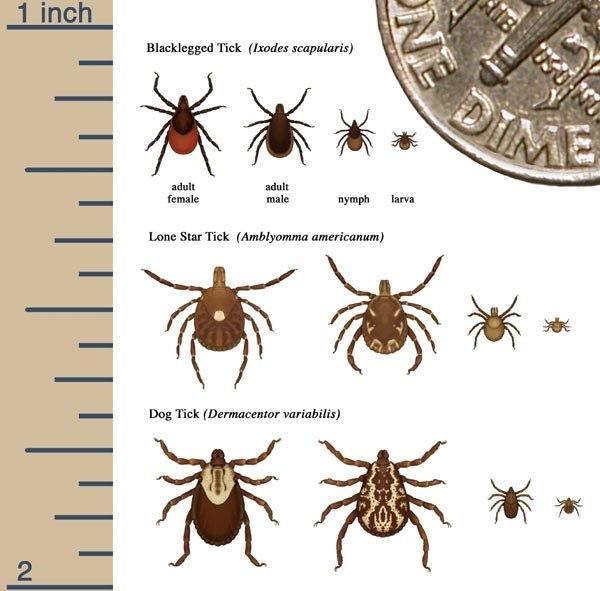
Several species of ticks live in this part of Delaware and Pennsylvania. They are most active in the late spring to early fall but can still be found in the winter months. The tiny deer tick can transmit Lyme disease and other illnesses, so you should try to avoid brushy areas or leaf litter where these ticks may be abundant. These simple steps may help you prevent from being bitten by a tick:
What diseases can you get from a tick?Lyme disease is one of the more common tick born disease. It is a bacterial disease which is transmitted by a deer tick bite; ticks must be attached for at least 24 hours for infection to occur. Symptoms of Lyme disease may include fever, joint pain, a rash at the site of the tick bite, headache, and tiredness; if not treated, heart, kidney, and neurological problems may develop. Call your doctor if you develop symptoms of Lyme disease. Other species of ticks also carry bacteria that can cause serious disease including ehrlichiosis and Rocky Mountain spotted fever. The National Park Service, Office of Public Health, provides this detailed Ticks Factsheet. For more information about ticks and Lyme disease, please visit the Centers for Disease Control and Prevention: www.cdc.gov/lyme. |
Last updated: October 5, 2021
